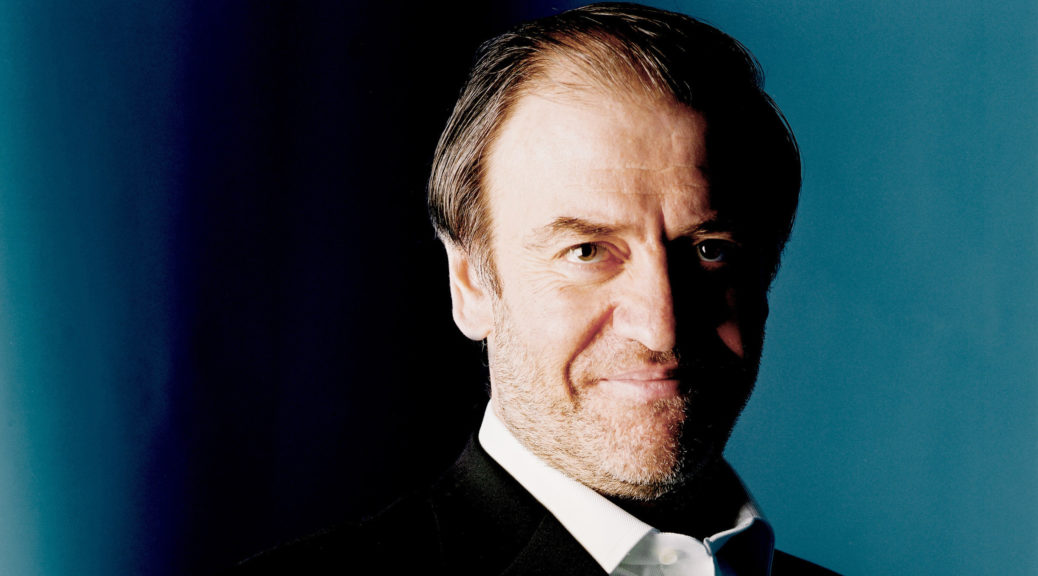
RUSSIANS SERVE US AN ULTRA-GENEROUS SYMPHONIC PROGRAM
The renowned conductor Valery Gergiev returned to the Bay Area, a generation after his leadership role in the San Francisco Opera’s brief heyday of Russian opera. This time, he was touring with the elite Mariinsky Orchestra of St. Petersburg. If you want him in opera, these days you have to fly to the Met in New York or beyond.
The Mariinsky (formerly Kirov) Orchestra poured out its Russian soul Nov. 4 with an intriguing lesser-gems program of early 20th century composers capped by the 48-minute nonstop Scriabin Symphony No. 3. This was the most generous symphonic concert of the year here, ending two hours and three-quarters after the first curtain, with two encores in between, all leaving the Zellerbach Hall audience breathless.
Gergiev, 64, has stepped down from his pedestal. There’s a simple black tunic instead of a formal, no podium, and he conducts with a unique baton the size of a toothpick (!). And, as usual, he sports a perennial five-o’clock shadow. It’s all a move against the deification of the maestro.
Instead we see a focus on music-making in less-familiar terrain with a memorable orchestra. If in solos the concertmaster (Lorenz Nasturica) sounded as if portraying the rocky relations between his country and the US, at the same time the Mariinsky showed off an absolutely dazzling woodwind section in the Shostakovich Symphony No. 9 and a lustrous brass section in the Scriabin.
In the music, the fascination was Scriabin, the eccentric who left a tiny repertoire of three symphonic opuses, some piano sonatas and very little else heard today. A true visionary, he exhibited the rare gift of synesthesia (associating colors with each tone). As such, his pieces tend to be sonic kaleidoscopes without start or finish. When will one of our enterprising orchestras arrange a dynamic lighting scheme based on his linkages, offering the visual with the aural?
Scriabin’s music is squishy: Few clear contours in the endless, wondrous textures, rarely a cadence, and an entire structure that blows away all the familiar divisions and fences. It’s somewhere between Chopin and Debussy and Franck, but in his own style, epic and celestial. It’s as if he, and his audience, were under the influence of controlled substances, wanting it to be endless. Some find this tedious; I prefer to float effortlessly with Scriabin’s nonstop flow, over three uninterrupted movements labeled Struggles, Pleasures and Divine Play in this symphony.
The Prokofiev Third Piano Concerto is an audience favorite, so naturally the Mariinsky substituted his much thornier and stormier Second Concerto, with pianist Denis Matsuev, the 1998 Tchaikovsky Competition winner in what may well have been his belated Bay Area debut. Matsuev interprets this as a tour de force, an ultimate challenge to a virtuoso technician, and he carried it off impressively with percussive power.
A far more interesting Matsuev emerged in his solo encore, the A Minor Etude Tableau of Rachmaninoff, full of nuance, rubato, dynamics and soul.
The Mariinsky closed out the concert with a generous encore of its own, “Forest Murmurs” from Wagner’s “Siegfried.”
The evening opened with Shostakovich’s rather one-dimensional Symphony No. 9, not at all comparable to his later works written after the death of dictator (and self-styled music critic) Stalin. Its main virtue is its rebelliousness: A facile light opus in direct opposition to the glorious victory march that the Soviet autocrats wanted after the world war. Yes, Shostakovich here was thrusting out his tongue to the commissars, which was as much rebellion as the regime ever tolerated without summoning the gulag guards.
This was the opening concert of a weekend-long residence at Zellerbach Hall, featuring different symphonic programs. I heard a few sighs of relief among patrons that prime tickets ran only $125, as compared to the Chicago Symphony’s stiff $175 a couple of weeks ago.
GERGIEV SOUVENIRS—He seems to revel in playing the noncomformist. Back in his S.F. Opera days, I once interviewed him in his apartment, and he was barefoot throughout… Though he is best known for orchestral work now, he was responsible for the first performances of the Wagner “Ring” cycles staged in Russian history, about a century and a half after the fact.
Mariinsky Orchestra in two programs Nov. 4-5 under Gergiev at Zellerbach Hall, Berkeley, under Cal Performances auspices. For C.P. info: 510-642-9988, or go online.
—BERKELEY